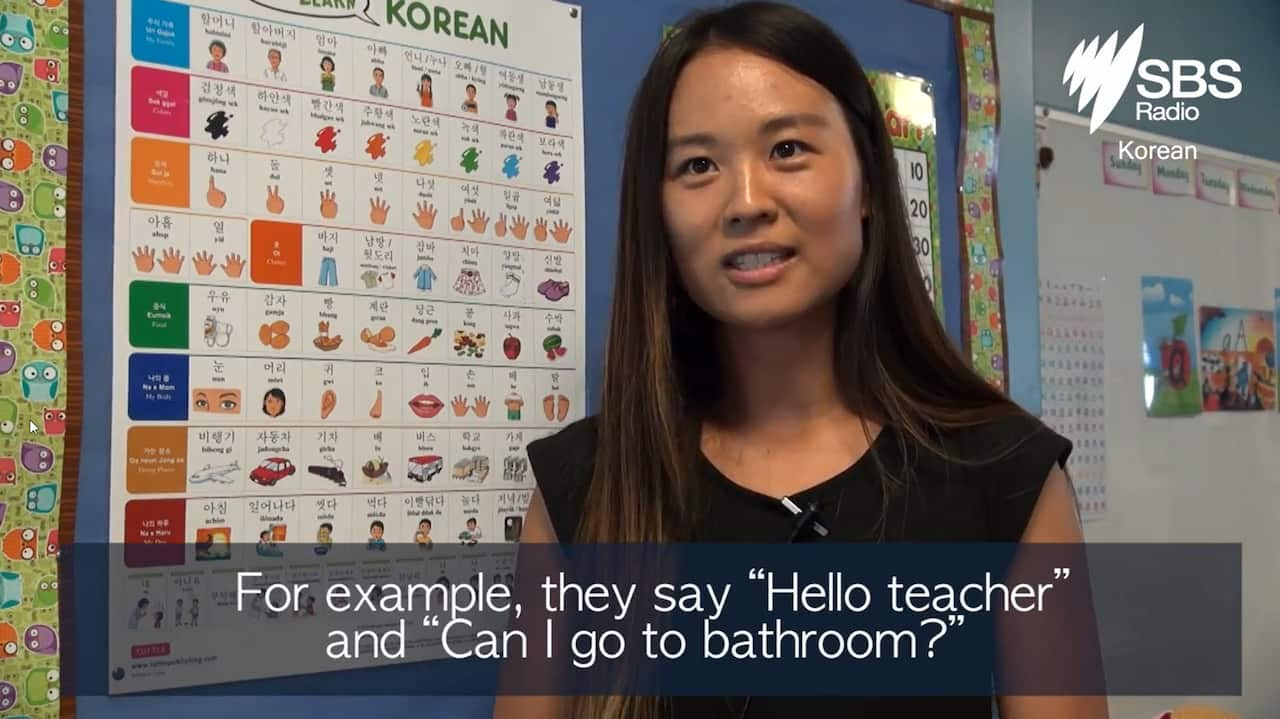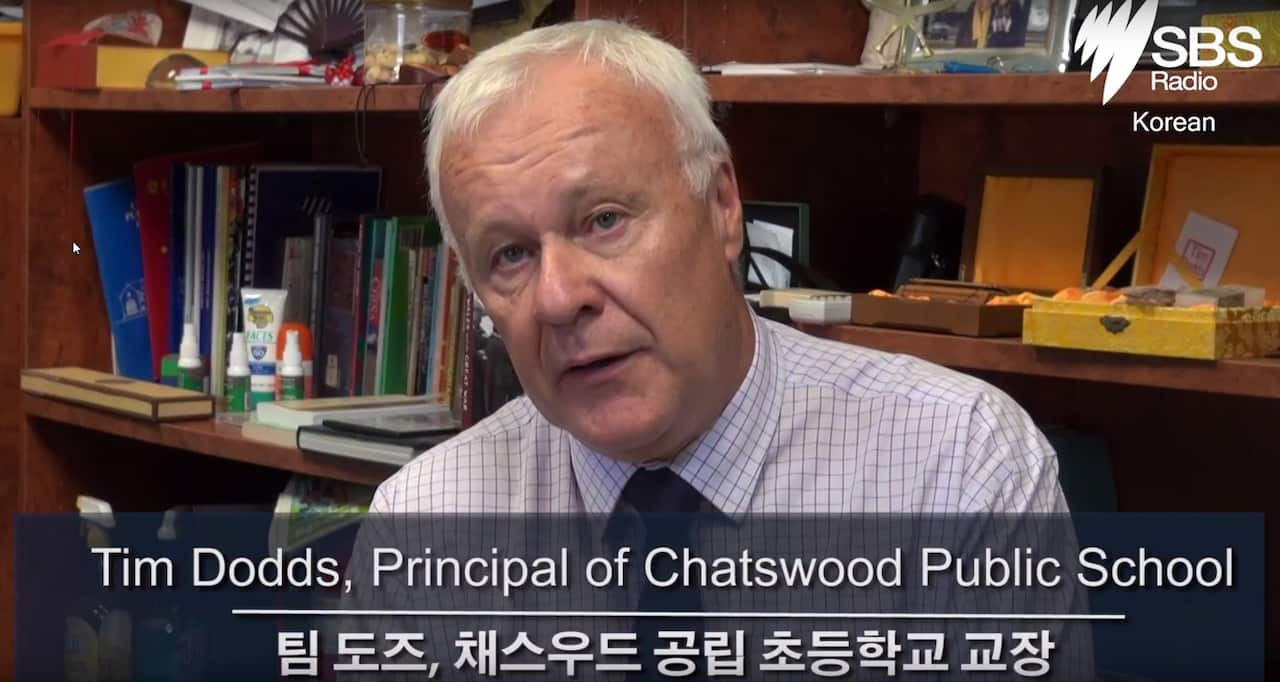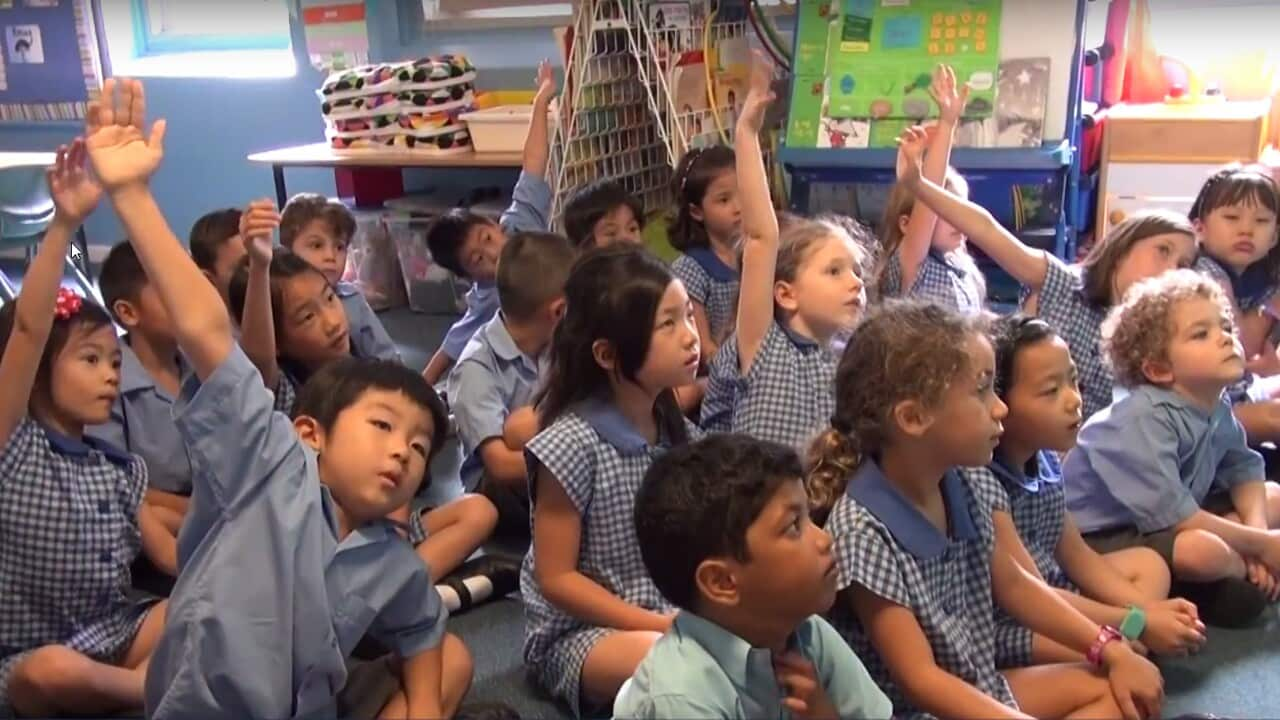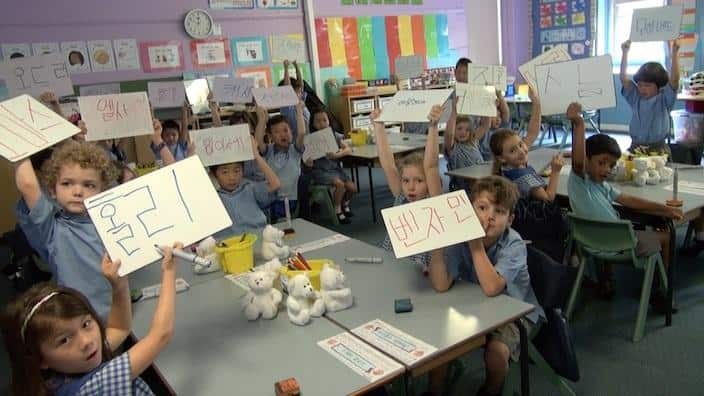"We want children in Chatswood Public School to engage more with Asia," says Tim Dodds, the Principal of Chatswood Public School, where children speak both Korean and English in a unique newly-initiated bilingual kindergarten class.
"We say in this school, learning an Asian language really guarantees you a job for the future," Dodds explains.
Listen to the full interview and radio story (in Korean) with SBS Korean, above.
Listening to the class, sounds like it could be taking place any international school in South Korea, but in fact, this is a kindergarten class in an Australian public school that follows the Australian Syllabus.
There are 11 kindergarten classes here in Chatswood Public School. One class was run as bilingual class last year and this year two of them operate as English-Korean classes.
"We teach all subjects in English and Korean and have a weekly special Korean class through the program," kindergarten teacher Susan Kim tells SBS Korean.
"Like other classes, they learn the same things, following the Australian curriculum - but we teach them in Korean instead of English."
Kim has been teaching in the bilingual class since 2016 when the program first launched.
"Children learn how to greet and make questions in Korean," she explains. "For example, they say 'Hello teacher' and 'Can I go to bathroom?' in Korean."
Kim explains that apart from this small language difference, the class is business-as-usual when it comes to meeting Australian education system.

"Like other classes, they learn the same things, following the Australian curriculum," she says. "But we teach them in Korean instead of English."
The 22 students here in the class are those who studied English and Korean in the first bilingual Kindergarten class last year.
Four students have a Korean background while 18 students have other cultural backgrounds.
While it is not the first time for a public school to run a bilingual class in NSW, the usual bilingual programs offer a language class from 40 minutes to two hours once a week by targeted language teachers.
The bilingual class at Chatswood Public School however, is unique. This is because the entire curriculum is delivered by a Korean and English bilingual teacher, providing a bilingual environment on a daily basis. Therefore, it proves more effective for students build up and maintain their daily language skills.
After one year of study in the bilingual class, these children can now introduce themselves and express what they want to say in Korean by making simple sentences.
"In the future there'll be more things that Australians will be doing with Asian countries from tourism to teaching to food to education - so there is a benefit to kids being able to speak an Asian language."
90% of the students in Chatswood Public School have Asian background and 60% of them have a Chinese background. But, there is a reason why they started an English-Korean bilingual class instead of an English-Chinese class.
It is because Korean is found to be a bit easier to learn than Chinese and enough human resources were available in the school including eight pre-existing teachers with a Korean background.

School Principal Tim Dodds says learning Asian language will provide an advantage to students in the future.
"Asia is our partner, politically, industrially and as a marketplace," he explains.
"In the future there'll be more things that Australians will be doing with Asian countries from tourism to teaching to food to education - so there is a benefit to kids being able to speak an Asian language."
Watch the full story and see the kids put their language into practice here:

